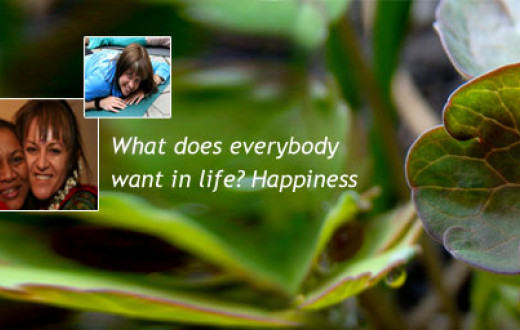
In the golden ages the king was a judge, an administrator and also a servant. He played all these roles. So, a king was very impartial. Politician, judge, administrator -- all these roles were played by the king. But when values started deteriorating, the impartiality of the king was questioned and the judiciary had to be created as a separate entity.
So, a separate judiciary system was created because the quality of impartial judgment fell down, and judiciary became a separate entity and the king became separate.
When values further deteriorated, the king and the administration became separate. So the politicians, bureaucracy, and judiciary -- these three roles which were played by one person in the beginning when everything was very harmonious, fell through and three different departments had to be created. This is basically a trust deficit.
Above politics is judiciary, so if judiciary is affected by corruption and clogged by bias and favoritism then that indicates the dark ages. So at any cost, in every country, in every continent, one must protect the purity of judiciary. If judiciary is in place, then people don't have to fear.
Today, good people are afraid of judiciary, and those who don't follow the laws, the judiciary don't care about it. What do you call these people? Scofflaw - people who do not obey any rules or care for the rule. So when criminals are not afraid of laws but the good people are afraid of laws, then that does not indicate good days.
It is of utmost importance that the judiciary of every country help the people, because when injustices happen in the society, whether through society or by government, the only recourse people have is judiciary. And if judiciary does not give justice to people, or people are afraid of judiciary, this does not indicate a healthy society.
I remember one of the chief justice of Supreme Court in India said, "God alone can help this country".
Another chief justice said something similar. And another chief justice broke down and said, "I don’t know what I can do. It is not just in one country, I think everywhere this issue is cropping up where the judiciary's impartiality is coming under question".
Now how can someone be impartial without a spiritual wisdom. If you’re impartial, you are a yogi and you are spiritual. If you don’t have impartiality then you cannot just take a position of a judge.
So, in the ancient days, when King used to give the judgment, on top of the king was a Raj Guru. If the king makes any mistake, there was a Guru of the king who would come and tell him, "Look, your judgment is not correct. You have to do this again".
I think today we need wise people almost everywhere to advise those who are
administrating the society. the lawmakers, the administrators and the judiciary -- this is the need of the hour. What do you think? How many of you feel the need of the hour? (Many in the audience raise their hands).
The need of the hour is to protect the impartiality of judiciary. People go to court and they’re so afraid of going to court because it may take them so many years to get justice. There is a saying, "Justice delayed is justice denied". And this keeps happening over and over again.
Today, in America, the issue is between people who are hopeless and people who are helpless. One community feels hopeless and another community feels helpless. It’s a swing between hopelessness and helplessness. The minority community feels hopeless, they don’t see any hope, and the majority community feels helpless, and so the division keeps expanding. Only spiritual knowledge can bridge the gap and bring people together, instill confidence and remove insecurity.
See, to be impartial one needs that ethical background. People say, "No, I want to do what I want to do, Why should I be impartial?" Why should someone be impartial? Why should one do the right thing? It is because everyone is part of you. When you see that the people of both sides (of a dispute) are part of you, you can't but be impartial. Do you see what I am saying?
If you see only the people on one side as close to you, the other as alien, then you can’t give justice, you can’t be a judge. A judge is one who is impartial. And why should he be impartial? So that he delivers justice. And how can one give justice when he does not feel equally connected with both the parties? Is it possible for him or her to give justice? No! So, who can be impartial? One who is a yogi can be impartial. Someone who is centered can be impartial, because he finds everyone equal. Whether someone gives him compliments or derogatory remarks, he remains impartial.
When can you be impartial?
1. When you have nothing to gain and nothing to lose you are impartial.
2. When you feel equally connected with everyone, then you’re impartial.
3. When you think about the welfare of everybody, and are looking at the larger good, then you’re impartial.
4. When you are spiritual, you’re impartial.
Does compassion makes you impartial? Compassion is always towards the weak. Towards weaker people you feel compassion. But if the weaker one goes wrong, then your judgment will go wrong. Then you will do injustice to the stronger one.
























